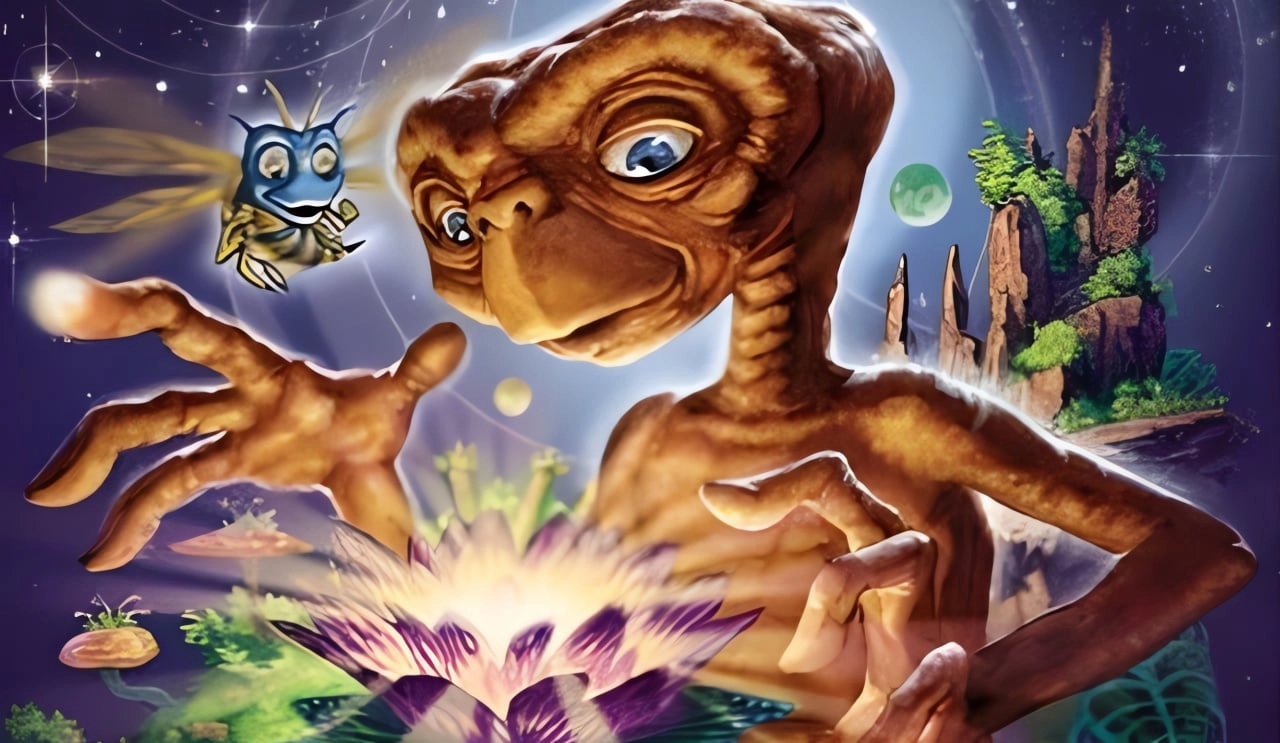
Two decades after Atari's ill-fated venture into an E.T. video game adaptation—a venture so disastrous that unsold cartridges were infamously buried in the New Mexico desert—the spectacle would repeat itself in an unexpected echo of history. This is the story of NewKidCo, a New York publisher of low-budget children's games, whose ambitious gamble on the extra-terrestrial icon E.T. led to their financial unraveling.
Hank Kaplan, who had a background in the video game industry, founded NewKidCo in 1997 along with Dan Feinstein and Jonathan Harber. The company's strategy was to create affordable, brand-licensed video games for children. Utilizing relationships with brands such as Tom & Jerry and Sesame Street, NewKidCo enjoyed some initial success, receiving investments and awards, and even forging a significant partnership with Ubisoft for international distribution.
However, the company's trajectory shifted when Kaplan decided to capitalize on the 20th anniversary of Steven Spielberg's E.T. film. With Spielberg's classic set to celebrate its anniversary in 2002, Kaplan believed that acquiring the license and creating a new string of E.T.-inspired games could be a lucrative move. Despite colleagues' concerns, including the hesitations of Feinstein, who favored pursuing the Harry Potter franchise, Kaplan moved forward and locked in the E.T. deal on November 27, 2000. The plan involved creating multiple titles across a range of platforms such as PlayStation 1 and 2, Game Boy Color and Advance, GameCube, and Microsoft's Xbox.
Initially, the company released several handheld titles like E.T.: Digital Companion and E.T.: Escape From Planet Earth for the Game Boy Color, along with more ambitious games for the Game Boy Advance and PC. Despite these releases, sales were tepid, and NewKidCo's financial commitments began to catch up to them. As the development milestones stacked up, the payment delays grew notably problematic, stressing the relationship between NewKidCo and its developer partners.
The final straw came when NewKidCo could no longer maintain payments for three high-profile E.T. projects. These included titles such as Search for Dragora, Return to the Green Planet, and The Salerian Encounter/Venrom's Assault. Unpaid fees to the companies involved in these projects soared—impacting smaller studios notably hard. The consequences reverberated throughout the industry, with ZedTwo confronting insolvency and Warthog Games purchasing ZedTwo to preserve roles amid the financial tumult.
With time, the failures compounded. Fluid Studios, which worked on the Game Boy Advance iterations, Warthog Games, and ZedTwo—all hopeful to release next-gen E.T. titles in October 2002—faced cancelled projects and the stark reality of unfulfilled fees exceeding a million dollars. The domino effect of NewKidCo's risky management decisions not only sealed the publisher’s fate but also led to the dismantlement of a well-regarded UK developer.
Despite NewKidCo's efforts to pivot and create titles that resonated with a new audience, consumer interest in E.T. was not as fervent as anticipated. The publisher's overextension and poor financial maneuvering steered them towards their eventual closure in 2005. In the wake of the crash, some of the unfinished projects became subjects of intrigue within the gaming community. Demos, artwork, and narratives surrounding the cancelled games like Return to the Green Planet and Search for Dragora have emerged over years, sparking speculation and a sense of what might have been had these games reached completion.
While these tales of development hell illustrate the pitfalls of licensing and the volatile nature of the gaming industry, they are also testament to the creative ambition that drives developers. NewKidCo's tale stands as a cautionary episode, showing the industry that not all gambles pay off and not all legacies—especially one as checkered as E.T.'s in the gaming world—should be resurrected. The legacy of Atari's E.T. failure seemed almost like folklore, yet it became a painful reality for NewKidCo and their partners, a stark reminder that sometimes, history does indeed repeat itself.
You must be logged in to post a comment!